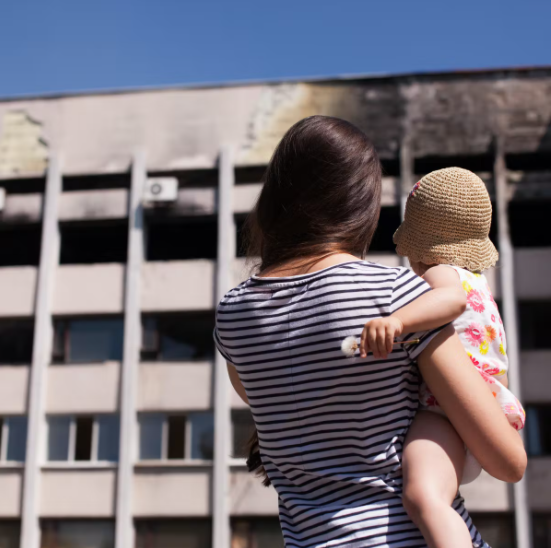

SDG 3 Good Health and Wellbeing, well–meaning but how do we shift it to be meaningful in times of conflict?
by Sara Hurley on the 22/03/2022
Prepping the pack for Good Health and Wellbeing happened when the world looked a bit different from the way it is now. It was written before a grand-scale war in Ukraine had officially started. Situationally, it might not be all too different for people in Ireland (right now). However, we are beginning to see the impacts on emotional and psychological wellbeing; impacts on food costs and availability; energy prices and fuel.
Irish people are welcoming refugees into their homes, large amounts of money have been raised for humanitarian aid, and there have been many donation drives for much-needed supplies.
In many ways, this emergency has taken the attention away from people living in or fleeing ongoing wars and conflict, current international protection applicants in Europe, and those living in Direct Provisions in Ireland.
It is not easy to think about our good health and wellbeing when there is even greater suffering to taking our attention. So to throw the net wider for this month's challenge, I wonder if these connecting points would be of use: how can we still advocate for systems change when it seems the system is a runaway train?
We show up and take purposeful action that promotes peace and solidarity.
We offer support in meaningful ways, that are beneficial and not a hindrance.
We need to open our focus wider than the immediate.
We need to listen. Listen to the voices who have been fighting for justice since before the most recent crisis and show them that we are still with them.
Ways to support
Health needs in war look very different to those in times of peace. While providing healthcare or accessing vital services can be a challenge when structures are in place when conflict strikes this changes the landscape entirely.
This adversity is heightened by the effects of social stratification. This means women and young people, those with health needs and disabilities, LGBT+ peoples, and ethnic non-majority groups (such as the Roma community) suffer disproportionally.
Access to medication for HIV, tuberculosis and many others are needed. While the WHO are operating in Ukraine, more support is needed.
Here are some links to organisations that are working in Ukraine and conflict zones globally. To support the needs of asylum seekers living in Direct Provisions while much of the Irish government’s focus is on Ukrainian refugees, please consider them during this difficult time.
https://www.msf.ie/
https://www.concern.ie
https://www.unwomenuk.org/campaigns/support-women-in-ukraine
https://www.masi.ie/
LGBT Ireland has compiled a list of organisations in Ukraine and neighbouring countries that are supporting LGBTI+ people fleeing and remaining in Ukraine.
https://lgbt.ie/support-for-lgbti-people-in-ukraine/

Sara Hurley is a facilitator and a previous Saolta SDG Advocate. She currently sits on the Oversight Panel for IPPOSI’s Citizen’s Jury on the Future Use of Genomics in Ireland. She holds a MA in Gender Studies at UCD, and a BSc in Psychology at Birkbeck College, University of London. Her areas of interest are gender equality, human rights, sustainability and climate action. She has recently become a member of a community garden with sustainability principles at its core.
1 comment
Michael Kenny said on 27/03/2022 at 07:44
Sara, thank you for the post and brining these issues to our attention. I was stopped by your statement "how can we still advocate for systems change when it seems the system is a runaway train?" The best time to advocate for system change is when the system bus in change or is moving like a runaway train. At least we take notice when we see a "run away train". Otherwise we ignore the need for change?